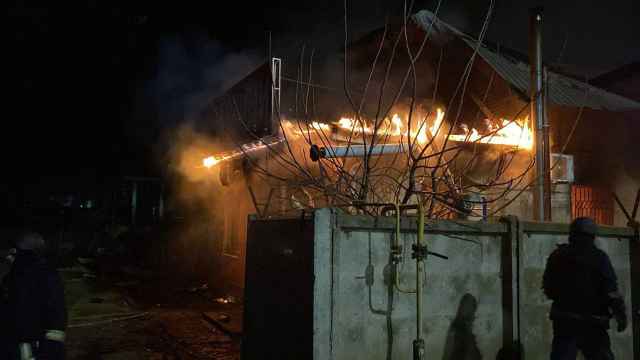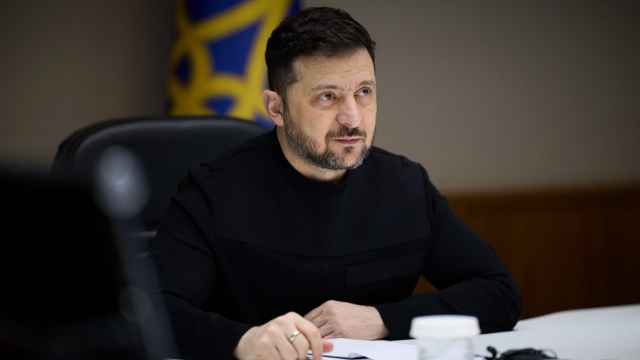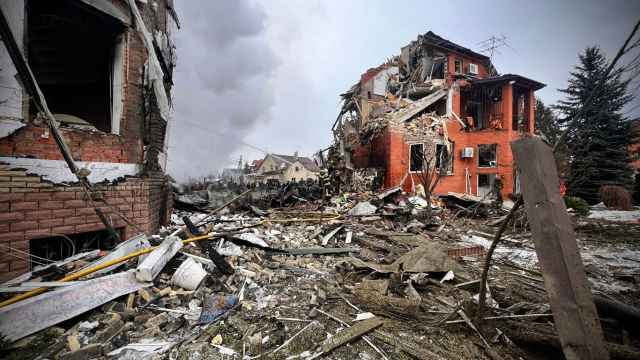The State Duma elections this time around were actually quite interesting, despite a sluggish start in which campaigning from all parties lacked vigor and went largely unnoticed by the public. Interest in the elections began rising sharply by the end of the campaign after the Kremlin suddenly became visibly nervous about United Russia’s falling ratings.
The authorities were even more concerned about the possibility that popular protests might break out after the elections. That would explain why the authorities cracked down on the Golos election-monitoring group and detained Left Front leader Sergei Udaltsov and activists from The Other Russia. It would also explain their decision to mobilize 30,000 members of the pro-Kremlin Nashi youth group, if necessary, to cordon off the central squares in Moscow.
For all its vapidity, the campaign served as a type of primary for United Russia. It also served as a venue for bargaining between the federal and regional political elites and for debates that, despite the lack of participation by top United Russia officials, provided a forum for increased and varied criticism of the ruling authorities.
The campaigns for 27 regional parliaments held simultaneously with the federal drive also added some intrigue to the Dec. 4 elections. Having successfully replaced all of the heavyweight governors, the Kremlin was left without any big names to run on the United Russia ticket in the regions. That is why deputy prime ministers and other Cabinet ministers headed one-third of all party lists in place of governors.
Indeed, the regional factor played a greater role in these elections than ever before. United Russia fared fairly poorly in a number of regions, and although that will not change the overall picture, it will surely add to the ruling party’s troubles and humiliation.
The fact that the authorities did not obstruct independent elections observers from the Organization for Security and Cooperation in Europe could be indirect evidence that they had no concrete plan for widespread election falsifications, as many had expected to boost United Russia to the much-desired 60 percent level. At the same time, however, the Kremlin clearly overreacted with its heavy, crude attack against Golos.
Another positive aspect of these elections is that this is probably the last hoorah for a whole group of United Russia apparatchiks who need to be replaced with more energetic and innovative politicians. More important, this could also mark the end of the primitive and ineffective political system that Putin built back in the pre-
crisis days when the Kremlin had so much money and power that it all but dictated conditions in the Duma. But it is clear that the current political system will now have to give way to a more pluralistic one in which the Kremlin and United Russia will have to compromise and build coalitions with the three other parties in the Duma.
More important than the mere redistribution of Duma seats orchestrated by a dominant United Russia is the palpable shift in mood. Increasing numbers of people are venting their frustration with the ruling regime through protest votes that are reminiscent of the elections of 1989-90. Today, we have woken up to a fundamentally new political configuration.
Nikolai Petrov is a scholar in residence at the Carnegie Moscow Center.
A Message from The Moscow Times:
Dear readers,
We are facing unprecedented challenges. Russia's Prosecutor General's Office has designated The Moscow Times as an "undesirable" organization, criminalizing our work and putting our staff at risk of prosecution. This follows our earlier unjust labeling as a "foreign agent."
These actions are direct attempts to silence independent journalism in Russia. The authorities claim our work "discredits the decisions of the Russian leadership." We see things differently: we strive to provide accurate, unbiased reporting on Russia.
We, the journalists of The Moscow Times, refuse to be silenced. But to continue our work, we need your help.
Your support, no matter how small, makes a world of difference. If you can, please support us monthly starting from just $2. It's quick to set up, and every contribution makes a significant impact.
By supporting The Moscow Times, you're defending open, independent journalism in the face of repression. Thank you for standing with us.
Remind me later.






